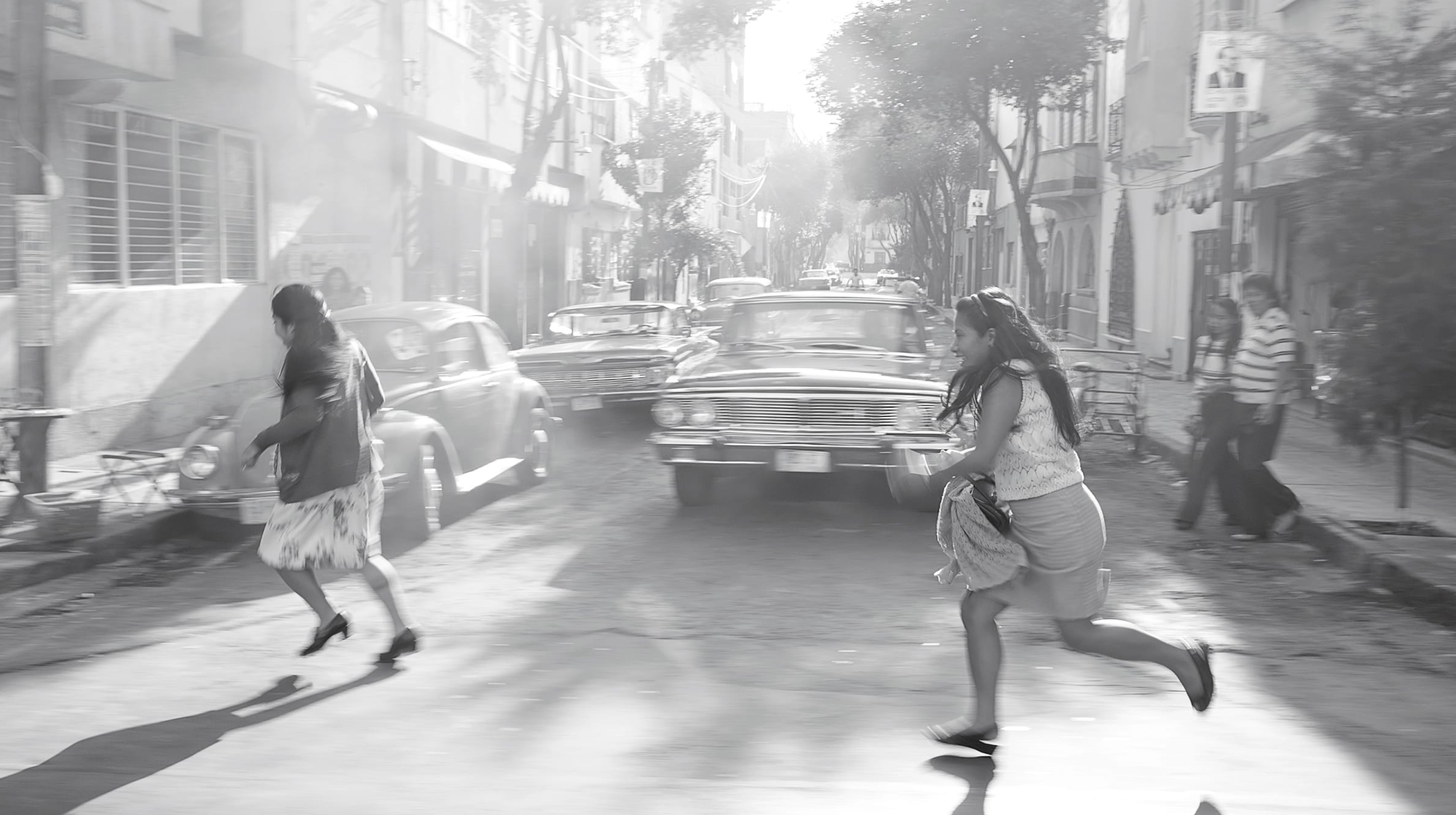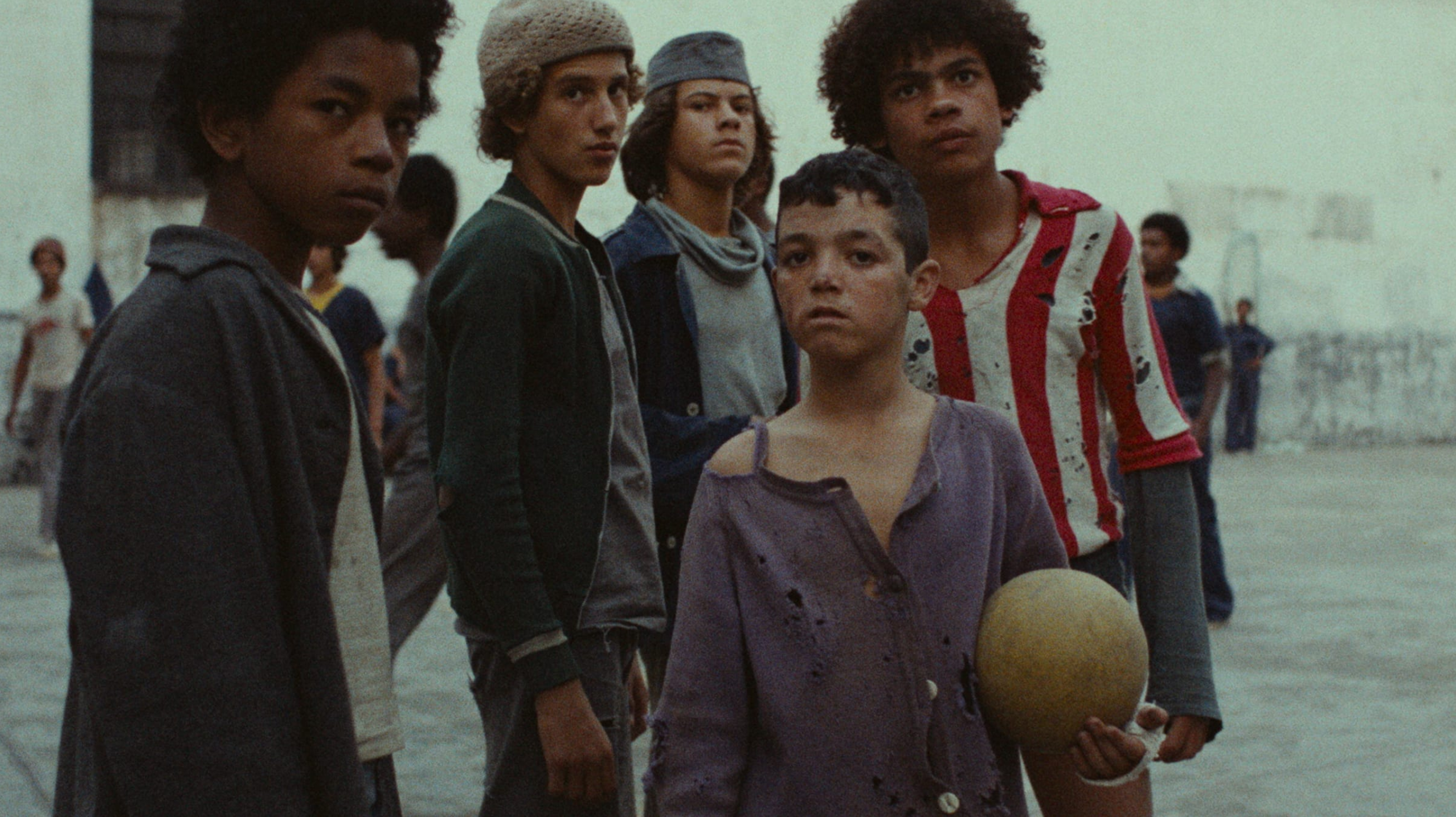Chungking Express: Electric Youth
by Amy Taubin
NOVEMBER 16, 2008
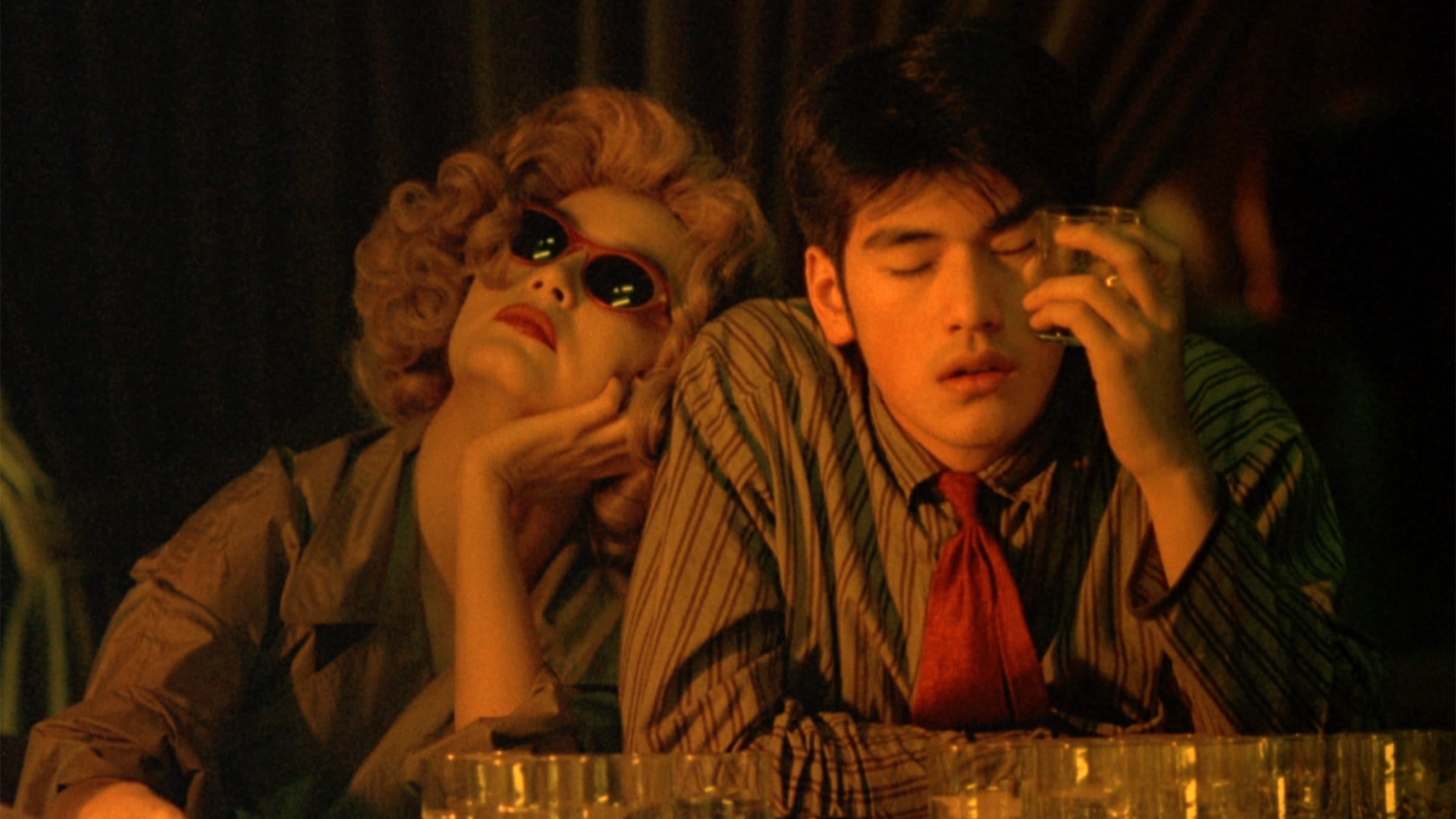
Chungking Express (1994) was the Masculin féminin of the 1990s, a pop art movie about cool twentysomethings looking for love in the city that has replaced Paris as the center of the world-cinema imagination. What Jean-Luc Godard did for “the generation of Marx and Coca-Cola” in the mid-1960s, Wong Kar-wai did for restless Hong Kong youth during the anxious decade that preceded the handoff to China. Masculin féminin (1966) and Chungking Express were the first films in which their respective directors focused predominantly on characters who were around ten years their juniors. This generation gap imparts a sense of distance mixed with tenderness, and also focuses the films on the dominant issue for heterosexual young adults: how to negotiate the desire and confusion they feel vis-à-vis the opposite sex.
Made while Wong was taking a break from the lengthy, difficult postproduction of his only martial arts period picture, Ashes of Time (1994), Chungking Express was intended as a money-generating quickie for the director’s Jet Tone company, and indeed the movie, which was made in three months, start to finish, has a wacky spontaneity that is unique in his oeuvre. Wong piled on the commercial elements: the first half is a nod to the gangster thriller, the second is pure screwball romance. The protagonists of both sections are cops, and the four main actors are all Asian box office attractions: pop music idols Takeshi Kaneshiro and Faye Wong, Hong Kong action/dramatic star Tony Leung Chiu-wai, and veteran actress Brigitte Lin Ching-hsia (the film’s only fortysomething star, coming out of retirement for a cameo appearance as a drug smuggler, fashioned as an homage to another middle-aged cult actress, Gena Rowlands in Gloria). Again comparing the film with Masculin féminin, the female leads in both are played by singers with youth culture followings. But unlike Masculin féminin’s Chantal Goya, a pop singer playing the role of a pop singer, Faye Wong in Chungking Express plays a waitress, albeit one who becomes identified with two songs—the Mamas and the Papas’ “California Dreamin’” and a Cantonese cover of the Cranberries’ “Dreams” by a singer named Faye Wong—which accompany her as she works. While the difference in strategy is minimal—at one point or another, both performers either lip-synch or dance to their own recorded voices—the difference between Godard’s and Wong’s depictions of the female characters is enormous. The Goya character is monstrous in her narcissism and vacuity. On the other hand, Wong is as empathetic with Faye Wong’s waitress as he is with the cops played by Kaneshiro and Leung.
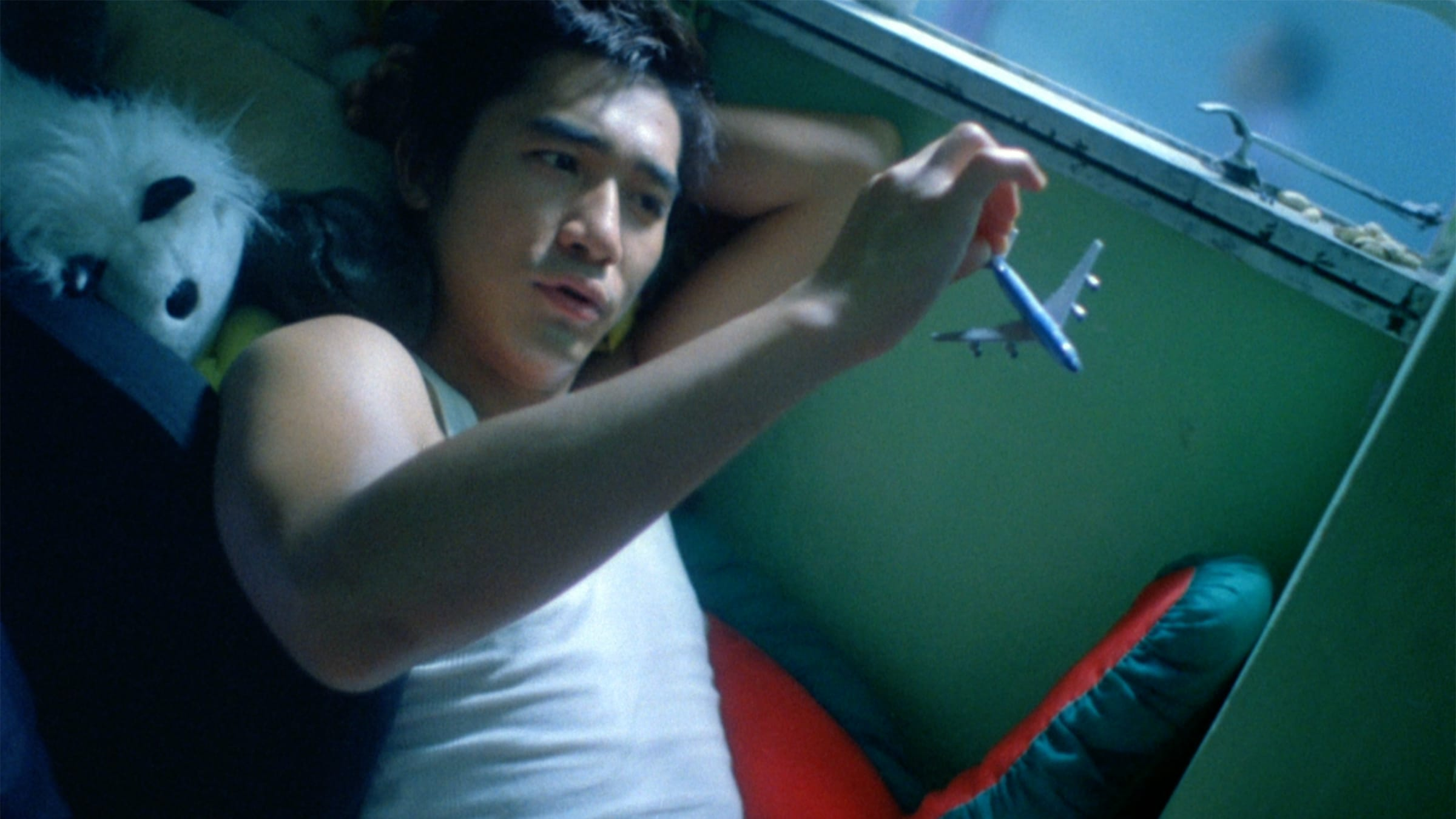
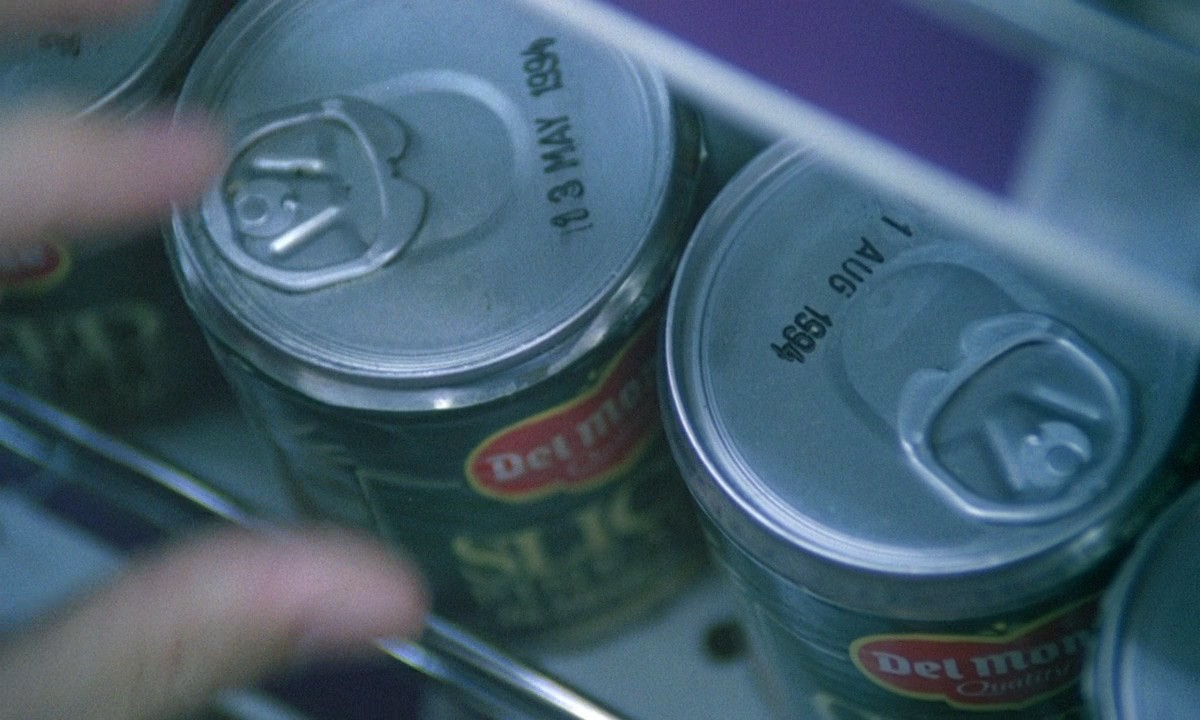
In Asia, the film didn’t disappoint, sweeping the Hong Kong Film Awards and doing well at the box office. In the United States, however, the turnout was disappointing, perhaps because Miramax, which distributed Chungking Express as a presentation by Quentin Tarantino’s Rolling Thunder company, was perplexed about whether to market it as an art film or an Asian exploitation flick. Nevertheless, the combination of filmmaking pyrotechnics and wistful romance proved irresistible to cinephiles. Chungking Express established Wong’s reputation as a major auteur, the most glamorous and enigmatic since Godard. It also marked a turning point in his work, a shift in direction that is actually signaled within the film, when the desultory underworld revenge narrative fades away and is replaced by a love story as simple as it is delirious. Writing in 1966 about Masculin féminin, Pauline Kael observed that “Godard has liberated his feeling for modern youth from the American gangster-movie framework which limited his expressiveness and his relevance to the non-movie-centered world.” Wong makes the same move in Chungking Express, underlining the separation by placing it midway through the film.
The narrative of Chungking Express comprises two separate and distinct stories. Although they are thematically related, each has its own central characters and locations. (If you look sharply, however, you can catch glimpses of characters from the second part in a few shots in the first.) The first story harks back to the genre action elements of Wong’s first feature, As Tears Go By (1988), while the second section prefigures the romantic yearnings of his later films Happy Together (1997), In the Mood for Love (2000), and 2046 (2004). Ashes of Time, which Wong finally completed shortly after Chungking Express, is also a genre action picture but teeters on the brink of abstraction. (In the revised 2008 version, Ashes of Time Redux, Wong removes some of the stylistic links to genre, making the narrative even more abstract.) And Fallen Angels (1995), which Wong conceived as the third section of Chungking Express but spun off as a separate feature, is a hyperbolic amalgam of gangster violence and mad love, as ungeneric a noir as could be imagined, and not only because the frequent fish-eye-lensed close-ups turn its cast of beauties, male and female, into a bunch of banana noses. Wong’s reputation as an art-house director rests with the three later, increasingly operatic romances—Happy Together, In the Mood for Love, and 2046—in part because genre films have never been fully accepted within the art-film canon, and in part because Wong’s mastery of sensuous polyrhythms and lush visual and aural textures was not as fully developed in the earlier films.
Minimally plotted, each section of Chungking Express focuses on a lovesick cop who pines for his ex-girlfriend until another woman captures his attention. One might venture that the first section, which opens with one of Wong’s signature step-printed chase sequences, this one through the teeming corridors and blind alleys of Chungking Mansions—a warren of flophouses, cut-rate shops, and import-export “businesses” that is a haven to criminals and the poor of all nations—is something of a blind alley itself, one which Wong drops after less than forty minutes in favor of a more promising romantic situation. It’s as if the film itself is looking for love in the same way that its characters are—by trial and error. The protagonist of the first section is a plainclothes cop, officer no. 223 (Kaneshiro), who is seen running hard in that opening chase scene and in another, shorter chase where he makes a collar, pretty much the only exercise of his profession in the film. Mostly what no. 223 does is obsess about his girlfriend, May, who jilted him on April Fools’ Day. No. 223 has given May until May 1, his twenty-fifth birthday, to come back to him. He marks the days of this countdown by buying cans of pineapple (“May loves pineapple,” he tells us in voice-over), each dated to expire on May 1. If she doesn’t call him on his birthday, the relationship will expire as well. It is doubtful that May (whom we never see in the film) knows or, if she did, would care at all about this ultimatum.
But like objects in a dream, the , and their looming sell-by date, condense multiple meanings and associations. May was no. 223’s number-one girlfriend, but he must let go of his love for her (“When did everything start having an expiration date?” he muses) in order to move on to the next stage of his life, a transition marked by his birthday. Then there is the canned pineapple itself, whose mass-produced sweetness is as cloying as the puppy love no. 223 feels. In fact, with May 1 only hours away, he tries to feed some of the syrupy stuff to his dog, who, like May, manifests no interest in such an absurd ritual of devotion. But no. 223’s eating orgy—he downs all thirty cans—transfers his heartache to his tummy, so that in puking up the pineapple he is relieved of the past and immediately fancies himself in love with the next woman he meets.
Hovering over the web of associations that defines the psyche of no. 223 is another countdown: in 1994, the handover of Hong Kong to China was only three years away. Comic anxiety about sex and romance is a front for the deeper fear that political freedom—an entire way of life—has an expiration date in the near future. The most striking difference between Masculin féminin and Chungking Express is the constant political activity and chatter in the former and its total absence in the latter. While this difference reflects a change in youth culture from the 1960s to the 1990s, it doesn’t mean that Wong is an apolitical director. Rather, like Eastern European filmmakers of the Soviet era or, more to the point, like some of his Chinese mainland contemporaries, he smuggles politics1 intough metaphor. Thus thing of the expiration date of canned goods.
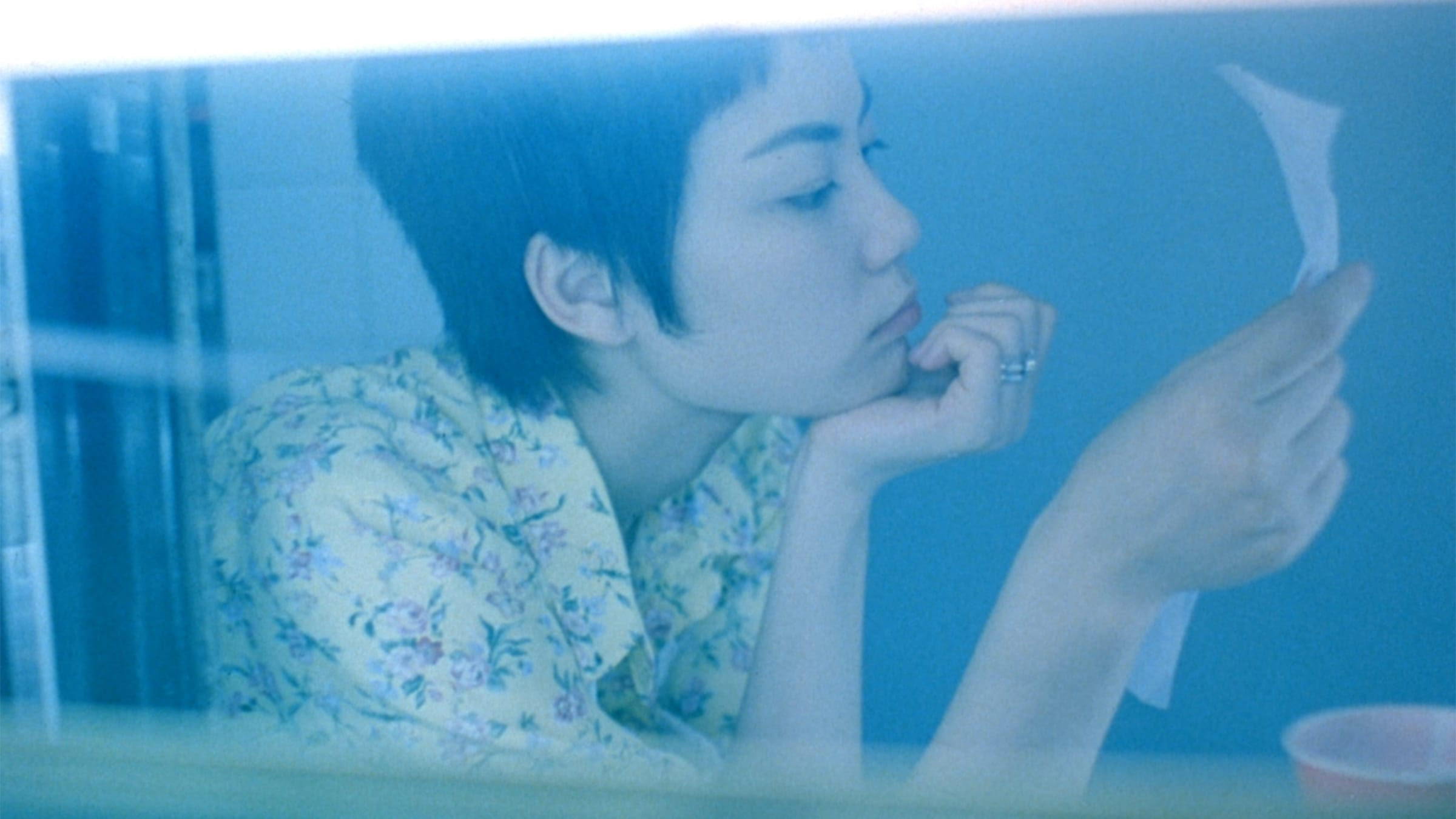
The darker aspect of the collective anxiety about the handover is reflected in the situation of Brigitte Lin’s blonde-wigged gangster. When someone slips her a can of sardines dated May 1, she gets the message: time is running out for her. If she doesn’t deliver the drugs that her two-timing couriers have stolen, she will die. She and no. 223 run into each other—literally collide—in the opening chase sequence. A smart cop would spot that her wig, dark glasses, and trench coat are a disguise, but no. 223 doesn’t realize then, or when he picks her up in a bar exactly “fifty-seven hours later,” that she is potentially the collar of a lifetime. His vision clouded, like so many of Wong’s male protagonists, by déjà vu—by the nearly forgotten “impact” of their first encounter—he fancies himself in love with her. They wind up in a hotel room, where she instantly falls asleep and he consumes four chef salads (there is hardly a scene in the film that doesn’t involve eating), and then removes her shoes and polishes them before leaving. Their relationship is utterly chaste, and yet the small acts of tenderness they extend to each other free them both—her to take care of business and him to resume his search for love.
Chungking Express, the title under which the film was released in the United States, is not a direct translation of the original Hong Kong title, Chung hing sam lam (Chungking Jungle). The U.S. title suggests the kind of synthetic space that only exists in dreams or movies—Chungking referring to Chungking Mansions, the primary location of the first section, and Express to the Midnight Express, the popular take-out restaurant around which the action of the second part revolves. The Midnight Express has already figured in the first section: it’s where no. 223 goes to call his answering service (his password is “love you for ten thousand years”) to find out if there have been any calls from the elusive May. The proprietor tries to fix him up with one of his waleftsses, who is also named May, but no. 223 isn’t interested. When he stops at the Midnight Express after his night with the mysterious blonde, May has moved on, and the proprietor suggests that no. 223 try the new waitress, Faye (Faye Wong). No. 223 accidentally sees an Indian man washing windows and responds, “Do you think I go out with guys?” Hopelessly confused—or maybe just a bit stupid—no. 223 proves himself not yet ready for love. He leaves the Midnight Express and is never seen again. As far as the narrative of the film is concerned, his story is over.
Into his place steps uniform cop no. 663 (Leung), who routinely stops by the Midnight Express to pick up a chef salad for his flight attendant girlfriend. Wong gives Leung, who will become his filmic alter ego, an entrance to die for. The shot is ostensibly from Faye’s point of view, but as no. 663 walks into close-up, she’s not the only one instantly smitten by the most soulful set of peepers in contemporary cinema. There is, however, someone who is immune to his charms, and soon no. 663 is jilted just like no. 223. Faye, using the keys that his ex-girlfriend drops at the Midnight Express, begins visiting no. 663’s apartment while he’s walking the beat, to do a bit of housecleaning. Wong will use this home-invasion ploy to more carnal effect in Fallen Angels, but nothing else in his films comes close to the giddiness with which Faye applies herself to housework as transgression, swiveling to the beat of “Dreams” on the soundtrack, or her delirious shift from joy to anguish when, crawling around in no. 663’s bed, ostensibly to straighten the sheets, she finds a woman’s long black hair under the pillow. In her first major acting role, Faye Wong takes over the film and runs with it. Her comic timing and her impulsiveness recall Katharine Hepburn in Bringing Up Baby—an association underscored when she leaves a huge toy cat, in this case a Garfield doll (the director would never be so obvious as to make it a stuffed leopard), in no. 663’s apartment as a substitute for the large white teddy bear left there by his ex.
As in Bringing Up Baby, opposites attract. No. 663, like the Cary Grant character, is an introvert, while Faye, like the Hepburn character, is dizzyingly extroverted. He’s so lost in his own head that he talks to a bar of soap to keep himself company. Not only does no. 663 fail to notice that Faye is gaga over him, he’s unaware that she’s been secretly transforming his apartment, until they come face-to-face at his front door—she’s leaving, he’s arriving, and when she sees him she’s so discombobulated that she slams the door in his face. It may be the only laugh-out-loud moment in Wong’s oeuvre. The two actors have terrific chemistry: their brief scenes together are more than sexy; they have an innocence that never returns to Wong’s movies after Chungking Express—a fling of a film, where regret is fleeting and joy triumphs, though who knows for how long.
MOVIE DETAILS
| Directed by | Wong Kar-Wai |
|---|---|
| Produced by | Jeffrey Lau |
| Chan Yi-kan | |
| Starring | Brigitte Lin |
| Takeshi Kaneshiro | |
| Tony Leung Chiu-Wai | |
| Faye Wong | |
| Release date | 14 July 1994 |
| Running time | 102 minutes |
| Language | Cantonese, Mandarin, English, Japanese, Hindi |

